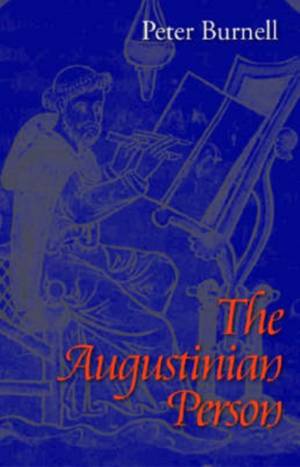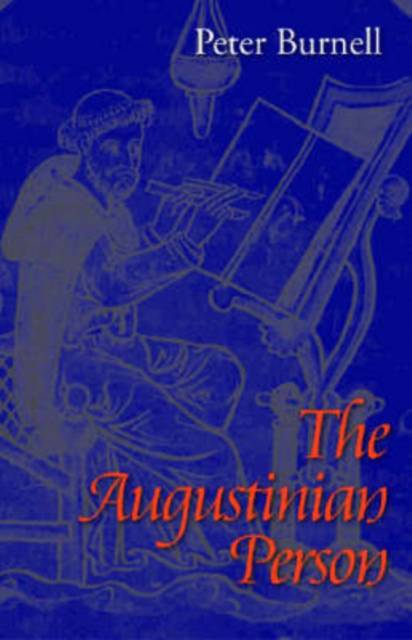
- Afhalen na 1 uur in een winkel met voorraad
- Gratis thuislevering in België vanaf € 30
- Ruim aanbod met 7 miljoen producten
- Afhalen na 1 uur in een winkel met voorraad
- Gratis thuislevering in België vanaf € 30
- Ruim aanbod met 7 miljoen producten
Omschrijving
Augustine's notions of human nature and of person have not received adequate systematic treatment, despite their centrality to all the important areas of his thought. Although he notoriously changed his mind on many major points, his explorations of human nature and person remained central and to a great extent consistent across his mature and most important works. In this insightful and accessible book, Peter Burnell examines the crucial issues in Augustine's understanding of these two related subjects, and concentrates on Augustine's fullest development of that understanding.
Through careful analysis of Augustine's writings, Burnell concludes that Augustine conceives of human nature as a unity at every level--socially, morally, and in basic constitution--despite very common objections that he fails to achieve such a conception. Furthermore, Augustine's doctrine of the Incarnation is the basis of his notion of person--not only human but divine. Thus the eternal relationships of God's interior life, though unchanging, have always had an outward bearing, in the sense of being eternally oriented on the Incarnation.
Continued interest in Augustine as a historical figure and a resource for contemporary reflection, as well as contemporary theorizing, by both philosophers and theologians, about the human person makes this study significant not only for the understanding of Augustine but for more general questions raised today regarding the human person.
ABOUT THE AUTHOR:
Peter Burnell is professor of history and Classics at the University of Saskatchewan.
PRAISE FOR THE BOOK:
"Reading The Augustinian Person is an adventure for the mind. Burnell's delicately framed questions about Augustine's understanding of the human person allow him to enter into conversation with other writers about evil and good, justice and compassion, grace and concupiscence, and life in this world and in the next. Showing how Augustine was part of the intellectual tradition of his time, Burnell includes both critics and lovers in a discussion that also identifies questions yet unsolved."--Allan Fitzgerald, O.S.A., Istituto Patristico, 'Augustinianum'
"This is a very solid study of Augustine which begins from the unexpected but intuitively brilliant starting point of expositing Augustine's theological anthropology. . . . Augustine was always more interested in what it means to live the Christian life than he was in finding the perfect doctrinal formula, and Burnell's work ably shows the benefits of studying him as if he were initially interested in the human condition before God."--Charles Mathewes, University of Virginia
"While sympathetic to Augustine's concerns, Burnell nevertheless provokes -- successfully and admirably -- a sustained interplay between potentially conflicting views in Augustine's texts and the equally conflicting interpretations of his works proposed by commentators, recent and not so recent, who question the coherence of Augustine's views. The extraordinary richness of detail that marks this interplay attests to the effort Burnell expended in unraveling the nuances of the controversy over the meaning of Augustine's texts."--Marianne Djuth, Theological Studies
"Augustine's conception of the human person is a difficult topic to comprehend, even for seasoned readers of his works. Peter Burnell, however, has managed to do so with extraordinary skill by engaging in a painstaking analysis of the subtle details of Augustine's texts that oftentimes go unnoticed. . . . In the end what emerges from this meticulous study of Augustine is a comprehensive vision of his anthropology together with a clear sense of the centrality of the person in his thought." -- The Thomist
"I would strongly advice to read this study for all who are interested in the (history of) philosophical anthropology in general, and fo
Specificaties
Betrokkenen
- Auteur(s):
- Uitgeverij:
Inhoud
- Aantal bladzijden:
- 234
- Taal:
- Engels
Eigenschappen
- Productcode (EAN):
- 9780813214184
- Verschijningsdatum:
- 1/11/2005
- Uitvoering:
- Paperback
- Formaat:
- Trade paperback (VS)
- Afmetingen:
- 168 mm x 205 mm
- Gewicht:
- 331 g

Alleen bij Standaard Boekhandel
Beoordelingen
We publiceren alleen reviews die voldoen aan de voorwaarden voor reviews. Bekijk onze voorwaarden voor reviews.









